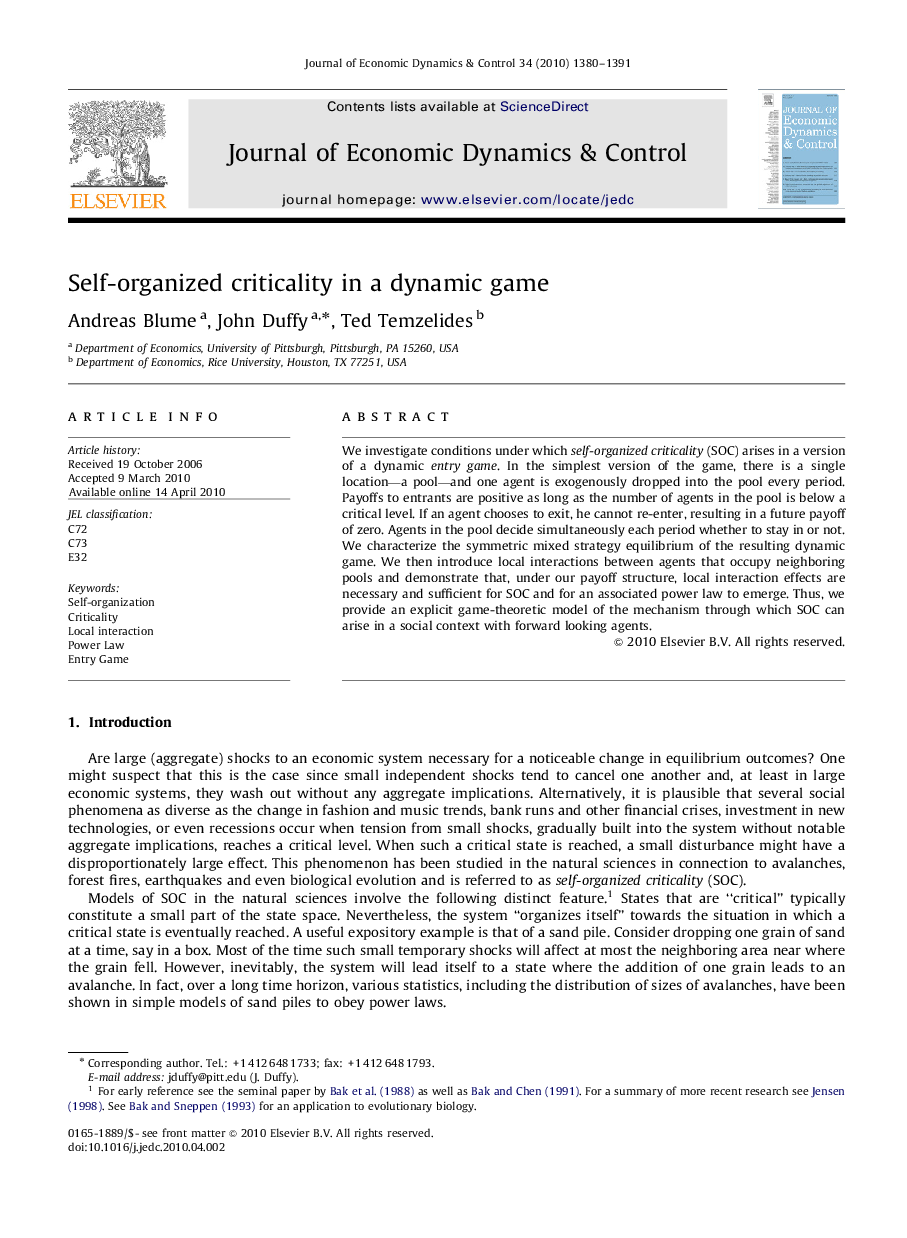| Article ID | Journal | Published Year | Pages | File Type |
|---|---|---|---|---|
| 5099383 | Journal of Economic Dynamics and Control | 2010 | 12 Pages |
Abstract
We investigate conditions under which self-organized criticality (SOC) arises in a version of a dynamic entry game. In the simplest version of the game, there is a single location-a pool-and one agent is exogenously dropped into the pool every period. Payoffs to entrants are positive as long as the number of agents in the pool is below a critical level. If an agent chooses to exit, he cannot re-enter, resulting in a future payoff of zero. Agents in the pool decide simultaneously each period whether to stay in or not. We characterize the symmetric mixed strategy equilibrium of the resulting dynamic game. We then introduce local interactions between agents that occupy neighboring pools and demonstrate that, under our payoff structure, local interaction effects are necessary and sufficient for SOC and for an associated power law to emerge. Thus, we provide an explicit game-theoretic model of the mechanism through which SOC can arise in a social context with forward looking agents.
Related Topics
Physical Sciences and Engineering
Mathematics
Control and Optimization
Authors
Andreas Blume, John Duffy, Ted Temzelides,
